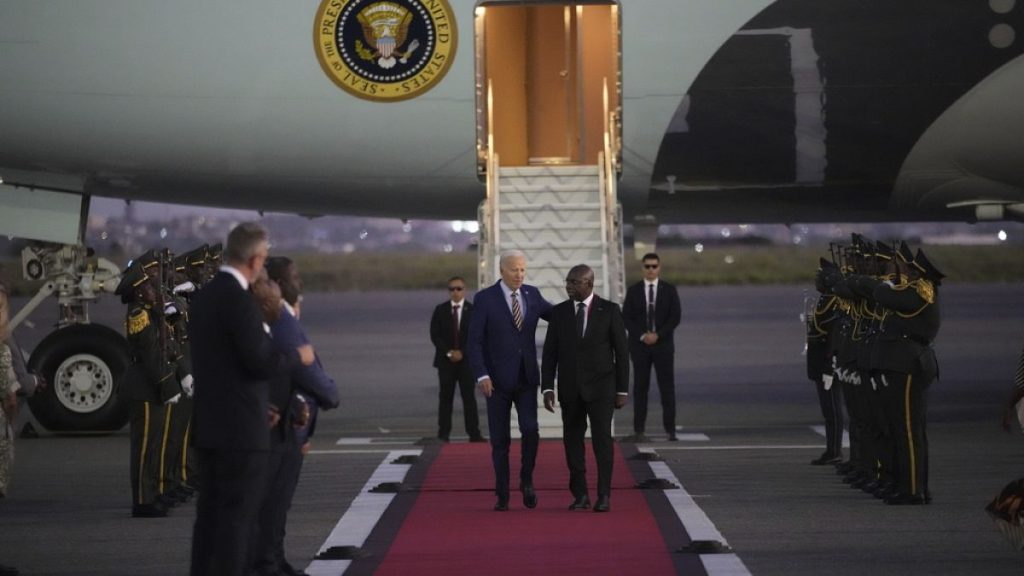In a historic diplomatic move, President Joe Biden’s trip to Angola marks the first visit by a sitting US president to a sub-Saharan African nation. This visit aims to underscore the United States’ commitment to strengthening ties with Africa, especially in response to increasing Chinese influence on the continent. A pivotal focus of Biden’s visit is the introduction of a substantial €2.8 billion investment into the redevelopment of the Lobito Corridor railway project. This vital infrastructure project stretches over 1,300 kilometers, interconnecting Zambia, Congo, and Angola, and aims to facilitate the efficient transport of raw materials within Africa and their subsequent export to the global market.
The Lobito Corridor is seen as a cornerstone of this new American strategy, which seeks to rejuvenate trade and investment relationships within Africa. The commitment is backed not only by the US but also by a consortium of international partners, including the European Union and G7 nations, alongside African banks. This partnership marks a strategic pivot in the US’s approach, which has historically concentrated on areas like humanitarian aid and security. Biden’s initiative is also interpreted as a direct counter to China’s robust Belt and Road Initiative, which has poured significant resources into African infrastructure in recent years, thereby increasing China’s presence and influence across the continent.
Despite Biden’s intentions, the timing and execution of this visit have raised questions among Africans regarding the US’s priorities in the region. The president had originally committed to visiting Africa last year following the revival of the US-Africa Summit in December 2022. However, delays, including a postponement due to Hurricane Milton, have continued to foster a sentiment among African nations that they may not be at the forefront of American foreign policy considerations. This perception underscores the ongoing need for the US to actively engage with African countries, enabling a more balanced partnership based on mutual interests.
During his visit, Biden’s agenda includes an official welcome ceremony, meetings with Angolan President Joao Lourenco, and discussions with leaders of African business organizations he has previously helped establish. These engagements are aimed at emphasizing the US’s dedication to fostering economic ties and investment opportunities. Additionally, Biden plans to visit Angola’s National Slavery Museum, a site of immense historical significance, once serving as a location where slaves were prepared for their journey to America. This visit is indicative of the broader narrative surrounding America’s historical relationship with Africa, one that encompasses both a legacy of exploitation and the potential for future partnership.
Biden’s travels will take him to the coastal city of Lobito, home to a critical port terminal that serves as the Atlantic endpoint of the Lobito Corridor. By inspecting this facility, he aims to provide a tangible illustration of the US investment’s immediate benefits for both Angola and its neighboring countries. This infrastructure upgrade is expected to enhance logistics and trade routes, further integrating African economies into global supply chains. With the proposed enhancements, the Lobito Corridor could serve as a pivotal conduit for shipping resources, including minerals and agricultural products, to international markets.
Historically, the last US president to visit sub-Saharan Africa was Barack Obama in 2015, highlighting the rarity of such high-level engagements. While Biden previously attended a United Nations climate summit in North Africa, his Angola visit represents a significant leap toward revitalizing US-Africa relations. As the Biden administration seeks to recalibrate its focus on Africa amidst growing international competition, particularly from China, this trip is viewed not only as a chance to reaffirm American commitment but also as a critical opportunity to build lasting, beneficial relationships with African nations. The outcomes of this visit will likely establish the framework for future engagement and investment across the continent.














